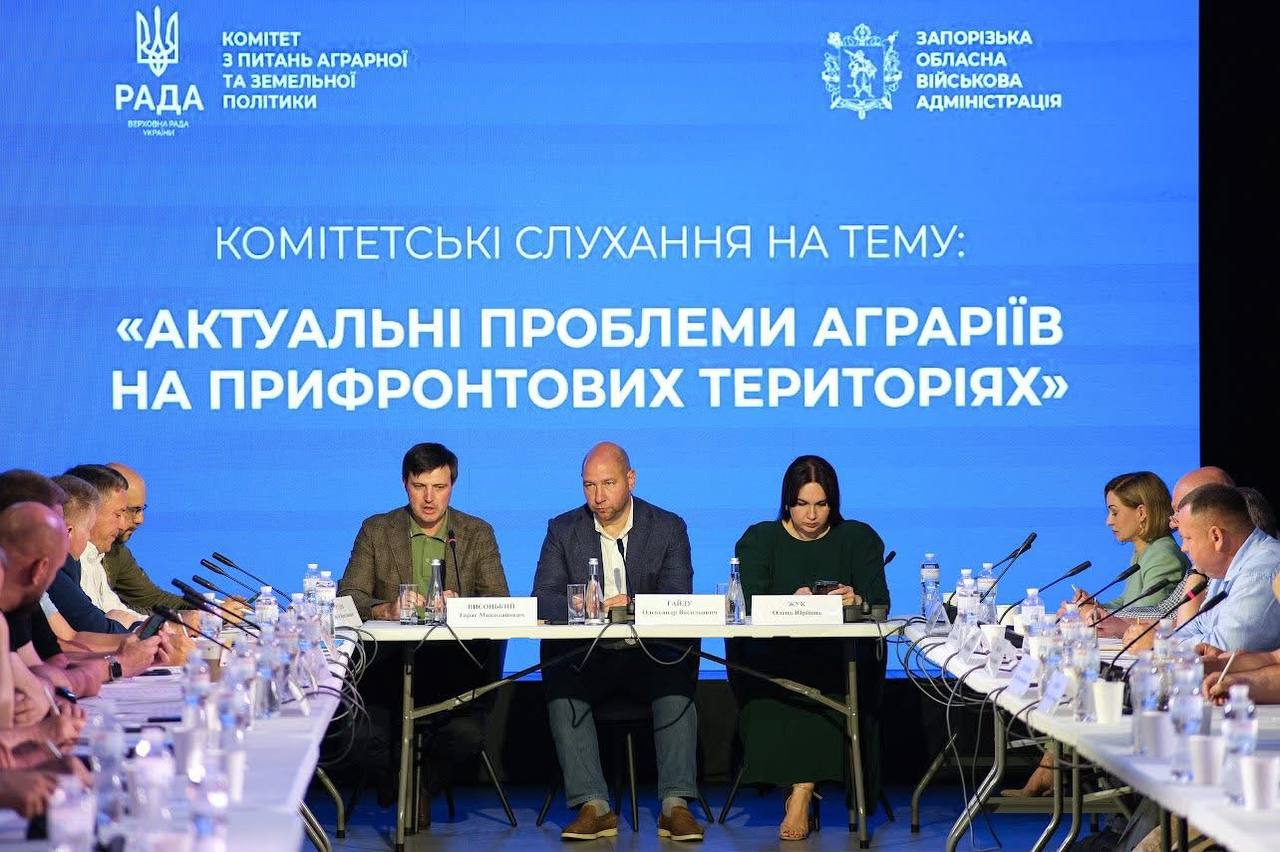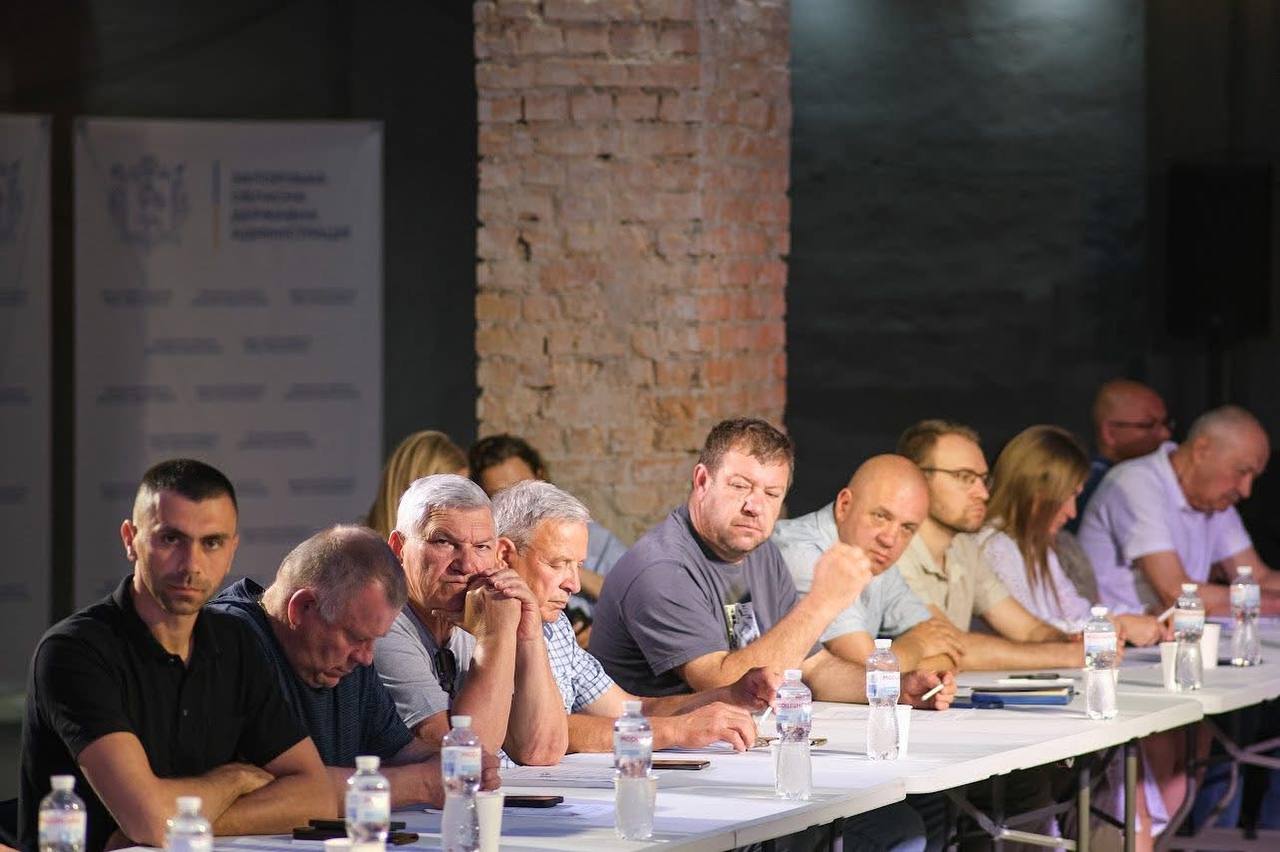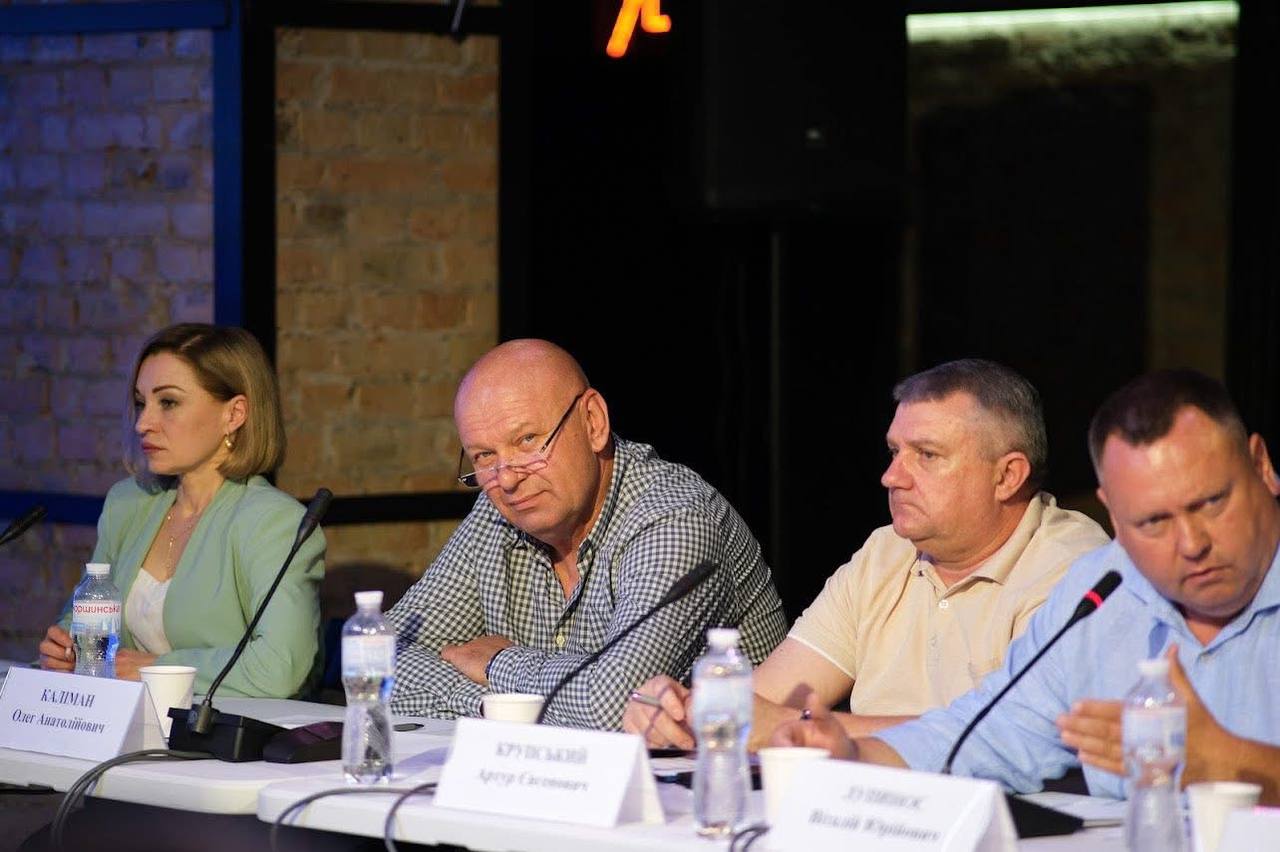Representatives of the Ukrainian Agri Council joined the committee hearings in Zaporizhzhia on “Current Problems of Farmers of Frontline Territories”.
The event brought together agricultural producers, people's deputies, representatives of the executive branch and the expert community for an open discussion of the critical challenges faced by farmers in the areas close to hostilities and occupied territories.
The hearings were attended by Chairman of the Committee on Agrarian and Land Policy Oleksandr Haidu and Deputy Minister of Agrarian Policy Taras Vysotskyi.

One of the most pressing issues was the debt obligations of farmers who lost their farms due to the occupation.
Oleksiy Shurkhal, a farmer, shared his own experience: "I left everything in the occupation, and in Ukraine there are many people like me who have loans. We were really hoping that the law on suspending loans adopted in March would be signed, but nothing has happened for three months. Banks are taking the last of our money, despite the force majeure of the war."
Farmers are outraged that the President has not signed the Law of Ukraine "On Amendments to the Final and Transitional Provisions of the Civil Code of Ukraine on the Peculiarities of Lending and Financial Leasing during the Period of Martial Law" (No. 4340-IX) for three months.

"People who have lost their businesses in the occupied territories and moved, unfortunately, face a very negative story from the state when they start receiving demands for repayment of loans and interest. Banks earned UAH 103.7 billion in net profit in 2024. According to our calculations, suspending loans would cost banks only UAH 3 billion, which is a tiny amount compared to their profits. But the banks are pressuring the President not to sign this law," emphasized farmer Serhii Rybalko and called on the heads of regional military administrations to appeal to the President to support the affected farmers as soon as possible.
The problem of re-registration of occupied enterprises was also raised by relocated farmers.
"When an enterprise relocates from the occupied territory, regulatory authorities immediately come to it and start demanding reporting and compliance with the law, just like in peacetime. For example, they demand two months' notice of dismissal for employees. Explanations that the company was occupied and ceased operations, that no one could have foreseen this in advance, that it is not always possible to find the employees themselves do not work. The same applies to tax reporting: how could it be submitted on time if the tax office itself did not work in the occupied territory, there was no Internet, and in many cases the documents or accountant remained in the occupied territory? We need to urgently amend the Tax Code, the Labor Code, etc. to take all this into account," said member of the UAC Oleh Kaliman.

The issue of construction of fortifications on agricultural land and the need to compensate farmers is another acute problem in the frontline areas.
Volodymyr Holovanov, a farmer from Donetsk region, said: "For some people, the war started three years ago, and for others it has been going on for 12 years. And we started building fortifications back in 2014. I would divide this process into three stages. In 2014, when the fortifications were being built in Donetsk and Luhansk regions, we hardly paid attention to them, as they covered 5-20 hectares. In 2022, with the outbreak of a full-scale war, the construction of structures began much more actively. And, of course, even when this happened a week or two before the harvest, which led to its destruction, no one paid attention to it. This has already resulted in the destruction of about 50-150 hectares of crops on the farms. In 2025, at the third stage, in March, the construction of fortifications has began, which, as I know, are in Kherson and Odesa regions. They practically cut off entire tracts of land where the defense line is 200 meters wide and make it impossible to get to them. This is thousands of hectares. But at the same time, farmers are forced to pay rent to shareholders for the land under the fortifications, and sometimes even taxes to the state. Now the UAC is working on a draft law that should solve this problem. It is important that MPs pass the relevant law as soon as possible - we are looking forward to it."

Farmers also criticized recent initiatives to restrict exports of oilseeds such as rapeseed and sunflower.
"Unfortunately, nowadays processing companies are actively lobbying for export restrictions on oilseeds. This will lead to lower prices. At a time when sunflower is one of the few crops that can be grown in the frontline areas suffering from drought, price restrictions will be a disaster," said Serhii Rybalko, calling on the Ministry of Agrarian Policy and Food of Ukraine and the relevant committee of the Verkhovna Rada to oppose such restrictions.
Current state support measures do not meet the scale of the challenges faced by farmers in the frontline
"We are now talking about the need to sign a law on a moratorium on loan repayments to occupied enterprises, but we should be talking about writing them off, as there is no way to get them back. In addition, it is appalling that the state not only fails to compensate for losses from the fortifications, but also forces farmers to pay taxes for land that was legally taken away from shareholders without any grounds. It is necessary to urgently adopt a law that will bring all this into the legal field and really regulate these issues," summarized Mykhailo Sokolov, Deputy Chairman of the UAC, summarizing the problems of the agricultural sector.

At the end of the hearing, Oleksandr Haidu, Chairman of the Committee on Agrarian and Land Policy, promised to provide comprehensive support to farmers in the frontline areas. He noted: "All the problems have been recorded. We will make decisions and send them to the Prime Minister, the government, and the ministries involved in these issues to find ways to solve them."
Thursday, 12 June 2025